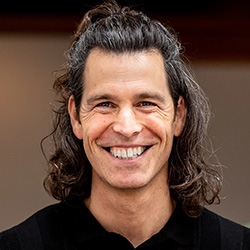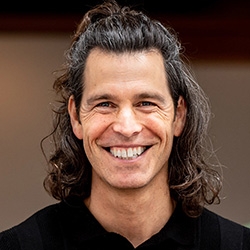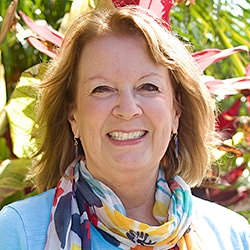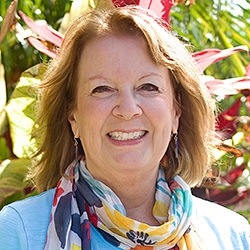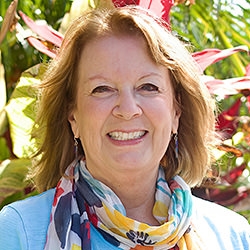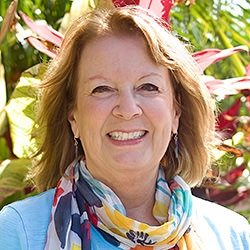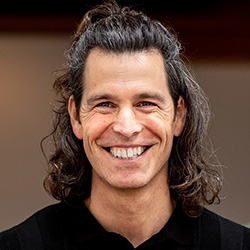
Search Results: hurt
-
- Learn how to use empathy to dissolve conflict
- Deepen your NVC skills to help let go of judgments
- Explore approaches for asking for what you want
- Listen to the conflict within yourself
-
In Yoram’s 2021 course, participants delved deeper into their NVC practice so they were better prepared to meet conflict head-on. In this 5-session series, Yoram explores: the power of empathy to change the trajectory of heated conversations embracing the internal conflicts of the different parts of ourselves how to approach differing views peacefully the use of NVC to help let go of judgments how to confidently ask for what you want
-
Trainer Tip: Research shows long-term change comes when people have intrinsic desire to change. Extrinsic motivation is temporary and often only lasts while we're observed (eg. driving the speed limit when police are there). Notice where you're mostly intrinsically or extrinsically motivated. How does this feel? For instance, do you call mom because you want to connect with her? Or because you’re worried she’ll be hurt if you don’t?
-
Trainer Tip: While everyone's feelings are a result of their own met or unmet needs it's still important that we take responsibility for our actions. This means acknowledging when our behaviors are a stimulus for another's pain, and expressing regret -- to support our own needs for care and consideration. In the process, taking responsibility where it's due in this way can enhance and deepen our relationships.
-
Trainer Tip: When we withhold our truth or lie, we can create emotional and physical distance in our relationships. By being honest, we can strengthen relationships. And when someone doesn’t appreciate your honesty, try empathizing with them. It can help to notice how your actions stimulate feelings in other people -- even as they are not the cause of their feelings.
-
Trainer Tip: We have four choices of how to respond to someone, even when they say things that are hard to hear. We can blame the speaker, blame ourselves, we can self empathize by acknowledging our feelings and needs, or we can empathize with the other person's feelings and needs. Be aware of these options and consciously make your choice based on the needs you want to meet.
-
Read how an American Buddhist NVC teacher with Jewish roots reflects on how any dehumanization in the Israel-Hamas conflict can be used to justify all kinds of violence that can escalate for generations. With acknowledgment of the complexities, his desire is for us to bring in respect, dignity and peace -- for both Israelis and Palestinians. He emphasizes compassionate advocacy of all humanity amid the ongoing crisis.
-
First, on the personal side… I’ve already planted half of my vegetable garden and it was so completely enjoyable. Remember how challenging this was for me a couple of years ago? My inner jackal did have a few things to say this year, but not nearly as many as in past years. And, I gave her loads of empathy so we made it through. I am thrilled about this. I can’t wait to see my seedlings pop up! If it’s a successful garden, I’ll share pictures in a future letter.
-
We typically think of certain words as feelings when they can be judgements (eg. “abandoned”). Hidden within evaluative/judgement words are true feelings and needs (eg. if we think we’re abandoned we may feel lonely or hurt, and want togetherness or belonging). With this handout discover more hidden feelings and needs within the judgements that sound like feelings. Then download the card deck to further practice and learn.
-
Dear friends,
#UnlockYourAuthenticVoice
This has been on my mind lately. What does it mean to unlock my authentic voice? How do I talk about things that matter to me without creating emotional distance between myself and others? I’ve found this especially challenging after the US presidential election this month— half the voters are devastated by Donald Trump’s election, and the other half are elated. The extremes are vast. Sometimes imagining a coming-together feels hopeless.
-
In relationships, the desire for space can conflict with the need for intimacy. This conflict arises from different strategies to meet similar needs. By identifying specific needs behind the request for space and understanding the other person’s needs for closeness, both of you can negotiate and collaborate. Repeated conflicts may indicate the need for personal healing, which you’ll need to address individually.
-
NVC trainer Sarah Peyton explores the process of repairing relationships through the lens of Nonviolent Communication. She emphasizes the importance of self-connection and empathy—both for ourselves and others—when addressing moments of hurt or disconnection.
-
It seems to me that people see ideas which are different from theirs as threatening. Instead of listening, the group polarizes around the different ideas and a lot of judgments develop, conflicts develop and people feel hurt. Forward progress becomes a battle ground. How can I support more collaboration?
-
- Discern what is preventing your communication style from being effective
- Create a communication style that works
- Resolve everyday conflicts and misunderstandings
- Create a deeper sense of connection, trust, and cooperation
- Heal old wounds between you and others, as well as within yourself
- Be the leader and contributor you want to be in any situation
-
Anger is a sign that you're resisting what's happening because you perceive an overwhelming threat, not trusting yourself to handle what's happening directly. Vulnerable feelings under anger are usually fear, hurt, or grief. Experiencing and expressing these feelings and connecting them to your needs, gives you access to more skill, insight, compassion, and wisdom. Read on for 3 questions to ask yourself when angry.

